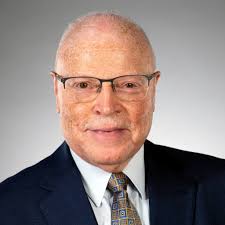New York, NY – The worst inflation crisis in 40 years is helping to fuel a two-day strike at the largest federal call center contractor in the nation next week. Workers organizing with the Communications Workers of America [CWA] first struck last month at Maximus call centers in Bogalusa, Louisiana and Hattiesburg, Mississippi citing poverty wages, unaffordable healthcare and racial inequity.
Maximus call center workers — the overwhelming majority women of color — earn roughly $35,000 fielding Medicare and ACA Federally Facilitated Marketplace calls. The two-day strike is set for Monday, March 23 and Tuesday, March 24.
I’m going on strike for a living wage and affordable healthcare at Maximus,” Louisiana-based call center worker Mya Harris, said in a statement ahead of the walkout. “We need these basic improvements to our working conditions for ourselves and our families because no one working for a multi-billion dollar corporation like Maximus should have to worry about how they’re going to make ends meet.”
The union says Maximus workers like Harris are joining a chorus of workers – particularly Black workers in the South – who are standing firm in their demand to form a union as the country faces its worst inflation crisis in over 40 years. The base pay rate at all of Maximus’ CMS call centers is close to half the wage rate needed for a parent with one child to meet minimum standards of living, according to the MIT Living Wage Calculator. The majority of Maximus call center workers are women and people of color (the workforce at the Hattiesburg, Mississippi call center, for example, is about 90.7% people of color and 80.8% female. The Bogalusa, Louisiana call center workforce is about 74.9% people of color and 82.7% female.)
The Maximus CMS call center workforce of about 10,000 is almost double the size of the entire CMS workforce of 6,021. Whereas the Maximus CMS contracted call center workers are predominantly people of color making poverty wages of roughly $35,000 a year, the CMS workforce is mostly white, and its non-supervisory staff earn an average of almost $118,000 a year. These workforces perform substantively different work, but the vast disparities in the racial demographics, pay, and affordability of health benefits between these two workforces demonstrate how contracting CMS call center work out to Maximus contributes to racial inequities.
The union maintains the Biden administration has made clear commitments to advancing racial equity and supporting workers to organize unions, including in the federal workforce. But as the largest federal call center contractor, Maximus has not aligned with Biden’s commitments, coming under fire after complaints of workers’ rights violations in the workplace, allegations of union-busting, and unsafe working conditions, primarily at its largest call centers in Louisiana and Mississippi.
Maximus operates out of ten call centers in eight states. Last month, the company released a statement saying in part, “Since Maximus acquired the Contact Center Operations contract in 2018, we have focused our efforts on three overarching goals to benefit our employees. These goals include continuously improving business processes and the work environment, improving pay and compensation above the minimum wage, and reducing employees’ out-of-pocket health care expenses.”





